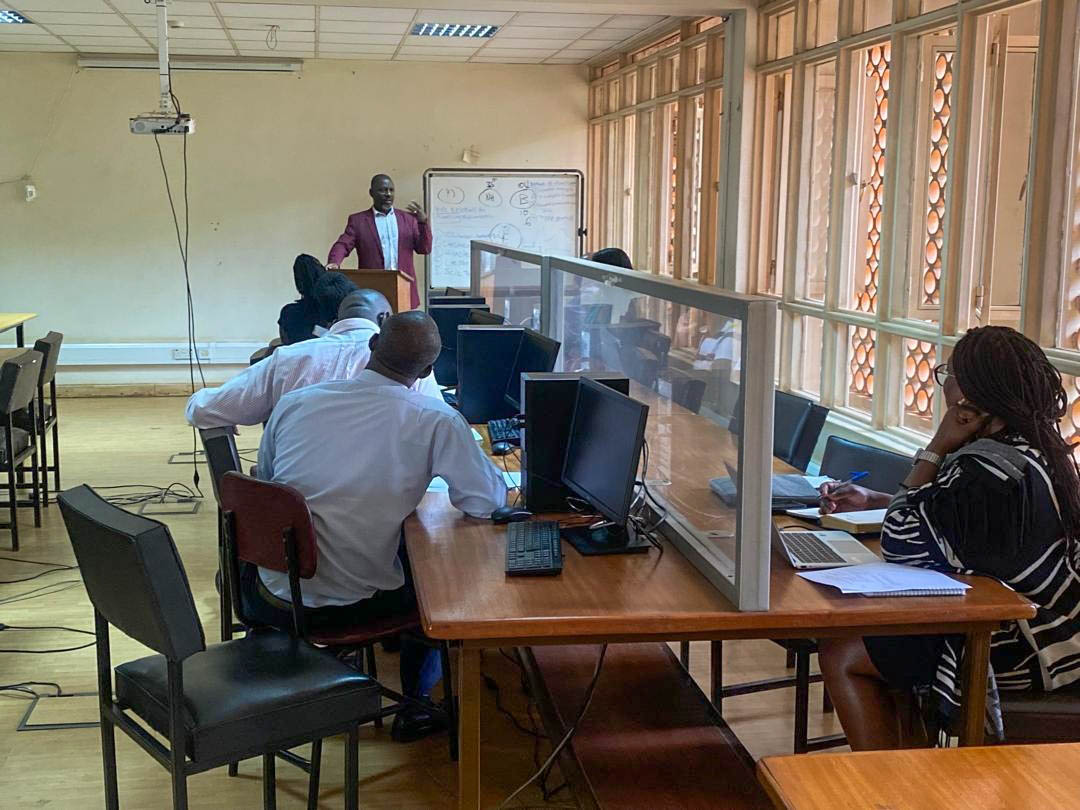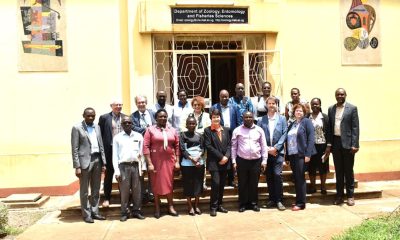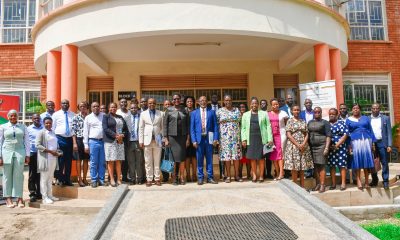By Moses Lutaaya
The Directorate of Graduate Training has equipped scholarly and communication skills to lecturers on facilitating PhD programs in different schools and colleges.
This was during a training dubbed “Training of Trainers” organized by Directorate of Graduate Training with funding support from the Consortium for Advanced Research Training in Africa (CARTA). The workshop, conducted in the training lab in the Main University Library, was spearheaded by facilitators from the School of Languages, Literature and Communication, where the course is housed.
Officiating at the training, the Director of Graduate Training at Makerere University, Prof. Julius Kikooma highlighted that the training aimed at strengthening and enhancing the capacity of schools and colleges in handling PhD studies.
“We select a few lecturers, comprehensively train them and we usually have them cascade the knowledge to other lecturers in the different schools and colleges.” Prof. Kikooma said.
Prof. Kikooma said the University had streamlined admissions into the PhD by research program at Makerere University. Presently, there are now two intakes per academic year, highlighting an increase in the number of applicants and admissions.
“Because of the increased number of applicants and admissions, the central management has put great emphasis on improving the environment for teaching, learning, and research for graduate students generally.” He said.
Prof. Kikooma said that in a bid to achieve a better learning environment, the Directorate of Graduate Training had spearheaded efforts to strengthen the capacity of staff in various schools to handle the PhD training.
The schools whose staff participated in the ToT included, School of Public Health, the East African School for Higher Education Studies & Development, Makerere University Business School, East Africa School of Library & Information Sciences, the School of Agricultural Sciences and College of Computing and Information Sciences.
The training that was supported by CARTA, Prof. Kikooma said “CARTA generally mobilizes resources to support researchers, especially graduate students, including Thesis completion, capacity building of researchers as well as support on actual PhD research.”
He added, “Makerere University prides in collaborations with partners that have resource mobilization power that is bigger than that of universities, saying, these support capacity building and competitive grants for Mak. The partners include the Council for Development of Social Science Research in Africa (CODESRIA) and CARNEGIE, based in New York.”
He however noted that the landscape for development partners continues to shift in terms of emphasis, this was not a sustainable way of supporting graduate training students and called for the need to work aggressively with government departments and agencies including the National Planning Authority to find more sustainable ways for addressing funding for graduate education in the country.
The trainers included Dr. Charles Kato – the Head of Department Biomedical Laboratory Technology and Molecular Biology- College of Veterinary Animal Resources and Biosecurity and Prof. Levis Mugumya, the Head of Department of Linguistics, English Language Studies and Communication Skills at School of Languages Literature & Communication.


 General2 weeks ago
General2 weeks ago
 Natural Sciences2 weeks ago
Natural Sciences2 weeks ago
 Agriculture & Environment1 week ago
Agriculture & Environment1 week ago
 Health2 weeks ago
Health2 weeks ago
 Health2 weeks ago
Health2 weeks ago














